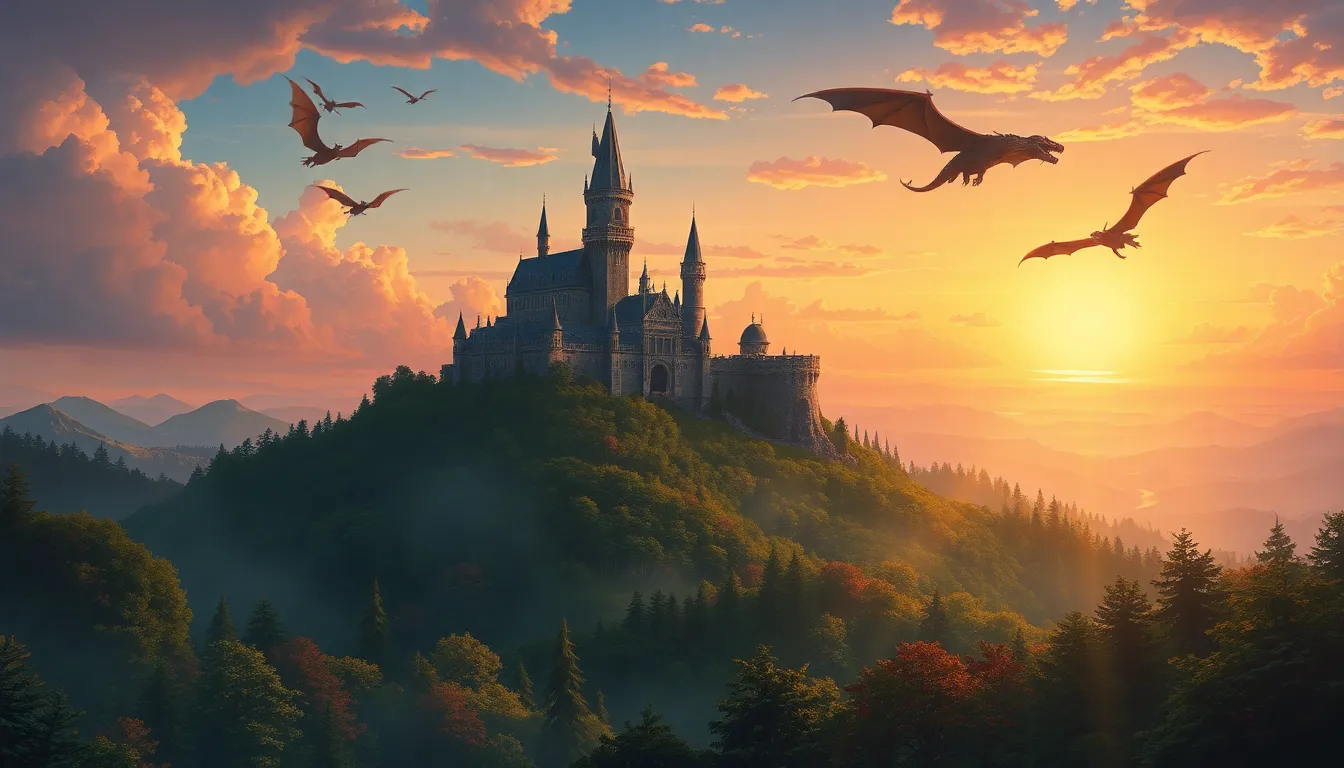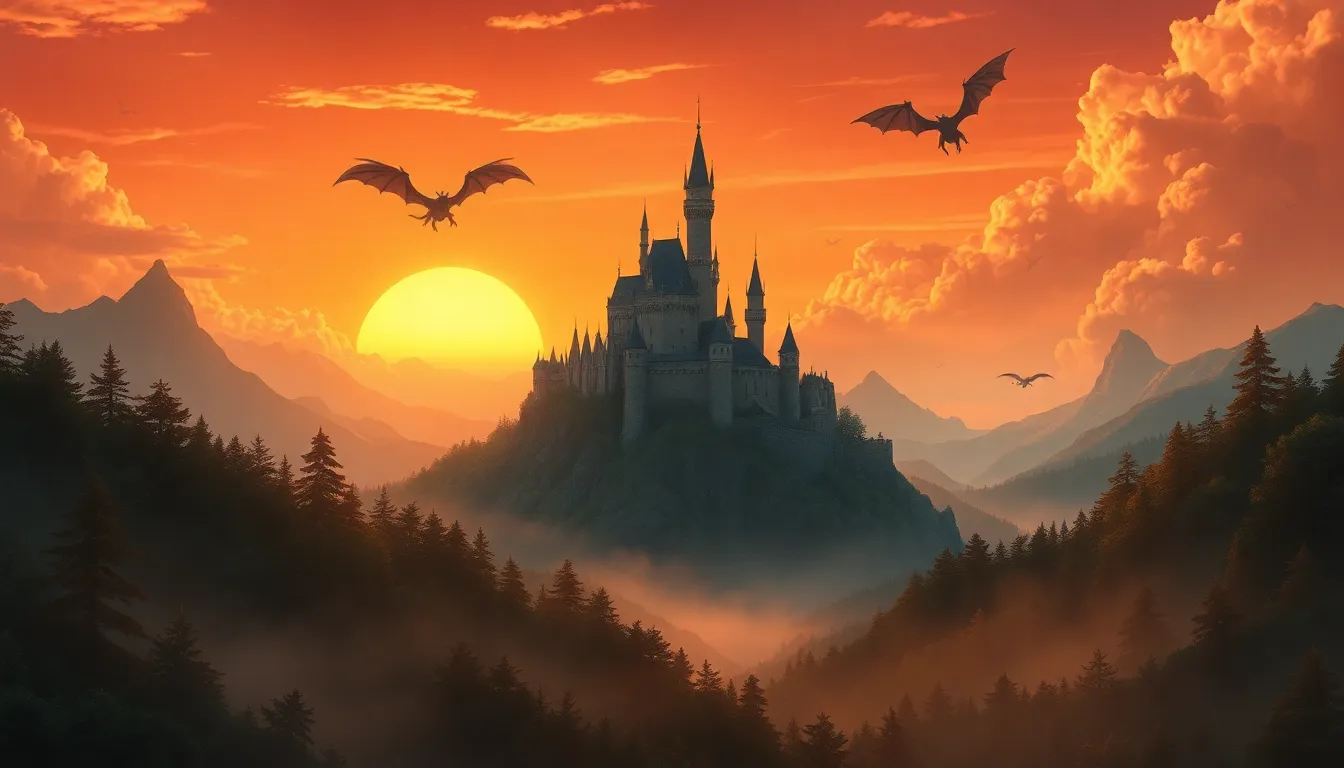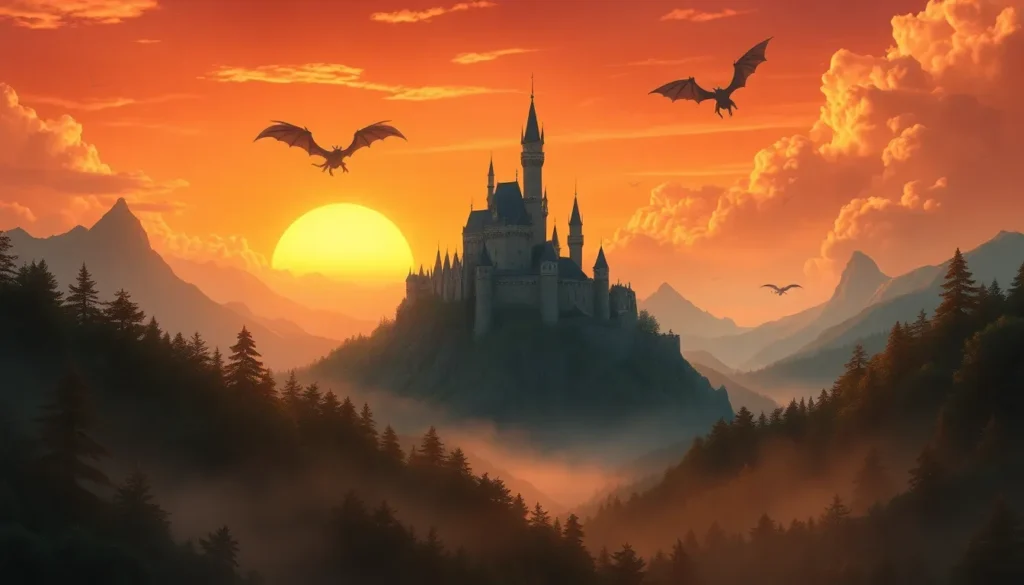In a world where dragons soar and wizards wield unimaginable power, fantasy TV shows whisk viewers away to realms beyond their wildest dreams. They blend magic, adventure, and a sprinkle of humor, creating captivating stories that keep audiences glued to their screens. Whether it’s battling mythical creatures or navigating complex political intrigues, these shows offer an escape from the mundane, proving that reality can sometimes take a backseat to imagination.
Table of Contents
ToggleOverview of Fantasy TV Shows
Fantasy TV shows captivate audiences with imaginative storytelling. Many series transport viewers to entirely new worlds filled with magic and wonder. Popular examples include “Game of Thrones,” which weaves complex narratives around political intrigue and mythical creatures. These shows often explore themes of heroism and morality against epic backdrops.
Viewers experience the thrill of adventure through heroic protagonists and treacherous villains. Characters wield extraordinary powers, face impossible challenges, and navigate intricate plots. Each episode unveils new revelations about fate, friendship, and sacrifice.
The production value of fantasy TV shows often stands out, featuring stunning visuals and elaborate set designs that bring these fantastical realms to life. High-quality special effects enhance the experience, immersing spectators in battles between dragons and knights or daring quests through enchanted forests.
Recent trends show a surge in fantasy adaptations from beloved literature, further expanding the genre’s appeal. Series like “The Witcher” have gained significant popularity and introduced an array of diverse characters and storylines.
Critics note that fantasy shows not only entertain but also serve as a lens to reflect societal issues. By blending reality with the imaginative, they provide commentary on human nature, power dynamics, and moral dilemmas.
Fans of the genre appreciate that fantasy TV shows allow them to escape into worlds unlike their own. A blend of visual grandeur, compelling storytelling, and relatable themes makes these series a staple in modern television.
Popular Genres Within Fantasy

Fantasy TV shows encompass various genres, each offering distinct themes and elements that attract diverse audiences. Here are some popular subgenres:
Epic Fantasy
Epic fantasy immerses viewers in sprawling worlds filled with magic, mythical creatures, and grand quests. Series like “The Lord of the Rings” exemplify this genre, showcasing sprawling landscapes and intricate lore. Characters embark on journeys that often involve battles against dark forces, creating high stakes and thrilling action. This genre emphasizes themes like heroism, friendship, and sacrifice, connecting deeply with audiences. Rich storytelling combined with detailed world-building creates an engaging experience that resonates with fantasy fans.
Urban Fantasy
Urban fantasy blends magical elements with contemporary settings, bringing mythical creatures and supernatural events into modern cities. Shows such as “Buffy the Vampire Slayer” personify this genre, featuring characters who navigate normal life while battling mystical threats. In urban fantasy, magic often exists alongside everyday realities, making it relatable to viewers. This genre addresses themes like identity and conflict within a familiar backdrop. The juxtaposition of the mundane and the extraordinary adds intrigue and excitement, appealing to those who enjoy seeing magic entwined with modern life.
Dark Fantasy
Dark fantasy delves into the more sinister aspects of magic and the supernatural, infusing horror elements into storytelling. Series like “The Witcher” explore morally complex characters and bleak settings, drawing audiences into a world filled with danger and despair. Themes of power, betrayal, and survival frequently emerge, offering a raw and captivating narrative style. The genre often questions humanity’s darker nature, presenting conflicts that challenge conventional notions of good and evil. By blending fantasy with darker elements, this genre captivates those drawn to stories that provoke thought and exploration of the human condition.
Key Elements of Fantasy TV Shows
Fantasy TV shows thrive on the imagination, utilizing various key elements that engage audiences. The following components significantly contribute to this genre’s unique appeal.
World-Building
World-building establishes the setting and context in which the story unfolds. Creators develop intricate landscapes filled with unique rules, cultures, and histories. Viewers encounter realms like Westeros in “Game of Thrones” or the Continent in “The Witcher,” offering immersive experiences that feel alive. Maps, languages, and lore enhance the depth of each world, encouraging exploration. Such detailed settings facilitate viewer investment in the narrative, as they discover the consequences of characters’ actions within these carefully crafted environments. The richness of these worlds allows for storytelling flexibility, making each fantasy series distinct and engaging.
Character Development
Character development plays a vital role in connecting audiences to the story’s themes. Protagonists often face moral dilemmas that challenge their values and motivations. Series like “Game of Thrones” showcase multifaceted characters who evolve over time, influenced by their experiences in a harsh, magical world. Antagonists reveal complex backstories that add depth to their motivations, making them relatable. Dramatic arcs enable viewers to forge emotional bonds with characters, enhancing the overall experience. As narratives unfold, character growth remains central, allowing audiences to witness transformations, struggles, and triumphs that resonate well beyond the screen.
Influential Fantasy TV Shows
Fantasy TV shows have shaped the landscape of television, inspiring countless viewers with captivating stories and rich worlds.
Classic Titles
“Game of Thrones” redefined modern fantasy with its intricate plots and well-developed characters. Audiences experienced political intrigue intertwined with epic battles. “Buffy the Vampire Slayer” combined supernatural elements with themes of friendship and growth, appealing to a broad demographic. Another classic, “The Twilight Zone,” explored fantasy through thought-provoking storytelling, challenging social norms. These series laid the groundwork for the genre, establishing beloved tropes that continue influencing new content.
Recent Hits
Recent years witnessed a surge in fantasy hits. “The Witcher” gained popularity for its complex characters and moral dilemmas, captivating audiences with its dark themes. Viewers readily embraced “Shadow and Bone,” which brought fresh narratives to fans of young adult literature. “His Dark Materials” offered a visually stunning adaptation of Philip Pullman’s acclaimed trilogy, generating excitement among longtime readers. Each of these shows expands the genre with diverse perspectives, showcasing the ever-evolving nature of fantasy television.
The Impact of Fantasy TV Shows on Culture
Fantasy TV shows influence culture significantly by shaping storytelling conventions and audience expectations. These series often reflect societal issues, addressing themes such as power dynamics, identity, and morality. For instance, “Game of Thrones” presents a critique of political ambition and the consequences of power, resonating with contemporary viewers.
Cultural references arise frequently within fantasy shows, intertwining aspects of myth and folklore with modern narratives. Iconic characters and quotes from series like “Buffy the Vampire Slayer” or “The Lord of the Rings” permeate popular culture, illustrating their lasting impact. Audiences widely adopt phrases and motifs, embedding them into discussions about courage and friendship.
Moreover, fantasy TV shows inspire creative expression across various mediums. Artists, writers, and cosplayers draw inspiration from the rich worlds and characters featured in these series. Commissions and fan art vividly showcase beloved characters from series such as “The Witcher” and “Shadow and Bone,” demonstrating the genre’s influence on creative communities.
Viewer engagement also includes online communities that discuss intricate plot details and character developments. Fans actively participate in forums and social media, sharing theories and analyses that deepen their connection to the shows. This interaction cultivates a shared cultural experience, enhancing the viewing experience for many.
Industry trends highlight the increasing relevance of diversity and representation in fantasy TV shows. Productions now showcase a broader range of characters and storylines that reflect a variety of backgrounds and perspectives. The inclusion of diverse voices enhances narratives, making them more relatable to contemporary audiences.
Fantasy TV shows continue to pave the way for upcoming generations of storytellers. As creators explore new themes and narratives, the genre evolves further, inviting viewers to engage with stories that challenge perceptions and ignite imagination.
Fantasy TV shows offer a unique blend of imagination and storytelling that captivates audiences worldwide. With their rich world-building and complex characters, these series invite viewers to escape reality and explore new realms filled with adventure and moral dilemmas.
As the genre continues to evolve, it’s clear that fantasy will remain a significant part of modern television. The growing emphasis on diversity and representation enriches narratives and resonates with a broader audience.
Ultimately, fantasy TV shows not only entertain but also inspire creativity and foster community among fans, ensuring their lasting impact on popular culture.



